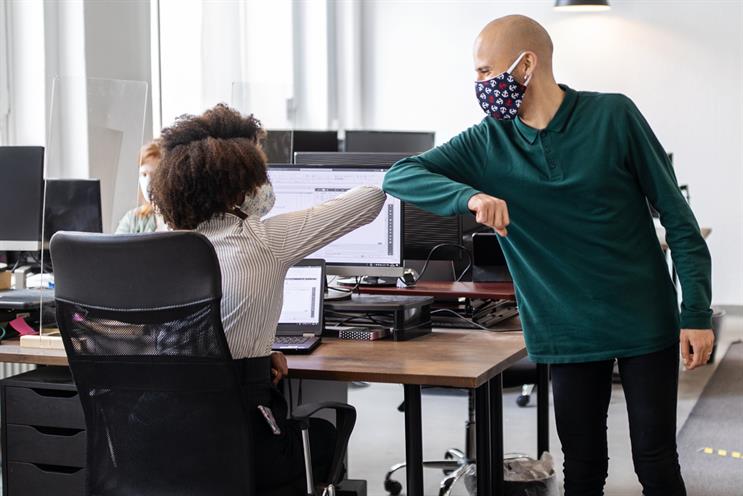As organisations across the land pay more attention to their diversity and inclusion (D&I) strategies and policies, there is an onus on everyone within a workforce – no matter what their seniority or background – to consider their own behaviour and attitudes.
The past year, with all the associated changes to working practices and time to consider what’s important in our lives, has surely created a moment and opportunity to rebuild better.
We are working in the world of marketing – we are in the business of understanding people and as an industry we are recognising that work is required to become more diverse and inclusive.
But it strikes me that our industry should be further ahead. As marketers we tend to be comfortable in our skin, curious, friendly and increasingly passionate about positive societal change – but we aren’t seeing this translate in terms of the number of people of colour in our industry. Only 7% of people working in advertising and marketing are people of colour, compared with 13% of the population according to 2019 figures from Statista.
As the mother of two black children – well technically ‘mixed race’ but that's not how most people define them – I’ve had my eyes opened to the preconceptions and stereotypes they face from strangers as they move into adolescence. And let’s be clear – to anyone who is in denial about whether racism is rampant in Britain, or who likes to “empathise” with their one story of a time they claimed they faced racism on account of their whiteness – people of colour face racism every day from the blatant to the unconscious.
While wondering what future careers my sons may end up having, I’ve examined my own naivety and, on occasion, snobbery and ignorance. I’ve had to reconsider my own active participation in improving and addressing diversity both in the workplace and in society through the campaigns we run in health and education for instance.
So, in considering how white people can be good allies, I’ve pulled together my thoughts. Because it is down to those of us in more privileged positions, who do not face the same, often unspoken, barriers to make it better and easier for people from all walks of life and all backgrounds to have the opportunity of careers in our industry.
So, my five tips for employers and colleagues to be better white allies are:
- Educate yourself: First, do your own research and take time to connect with your black colleagues on how they are feeling, but also come with a more informed view to have those uncomfortable conversations about the real impact of racism. Because racism doesn’t often affect white people, there’s a risk the default is to not really believe racism is a day-to-day experience for others.
- Create an inclusive culture: ensure you have an environment for people to be heard. This means creating a listening culture that allows for the sharing and celebrating of stories from within. There’s no place for white fragility. Establish “stay interviews” and mentoring; celebrate the multicultural and don’t just limit this to Black History Month; create a space to share topical news and detail expectations of people’s behaviour.
- Demonstrate leadership with responsible policies and appropriate training: Monitor your ethnicity pay gap not just gender; get involved in industry-wide initiatives and partnerships. Scrutinise your recruitment and hiring policies – that includes considering other intertwined factors such as class. Do you have an inclusive board and senior team? Measure and monitor all your diversity data and set targets. Put policies in place and make them public. Look at bias training – but make sure it’s not delivered through the eyes of white people or think that this in isolation will address the problem. Introduce in-depth learning around the seven diversity metrics including race and ethnicity.
- Scrutinise the work we produce: Create content that speaks directly to target audiences, that acknowledges any inequalities and is instantly recognisable as “for me”. Banish the word BAME – black, Asian and minority ethnic audiences are not one homogenous group, and the term denies the complexity and diversity of the audiences. But don’t plaster over the central issue by giving it another name that doesn’t get to the root of the issue. Think about your production and casting – don’t let fear lead to inertia and collaborate with clients.
- Acknowledge white privilege: My final advice for white people wanting to engage (and you must) but not sure how – is to take an honest, no holds barred look at yourself, acknowledge your white privilege, and then set about to change things. We all need to do the work in our immediate circles of influence and organisations to deliver the seismic change we want to see.
Jody Hall is the PR partner at 23Red


